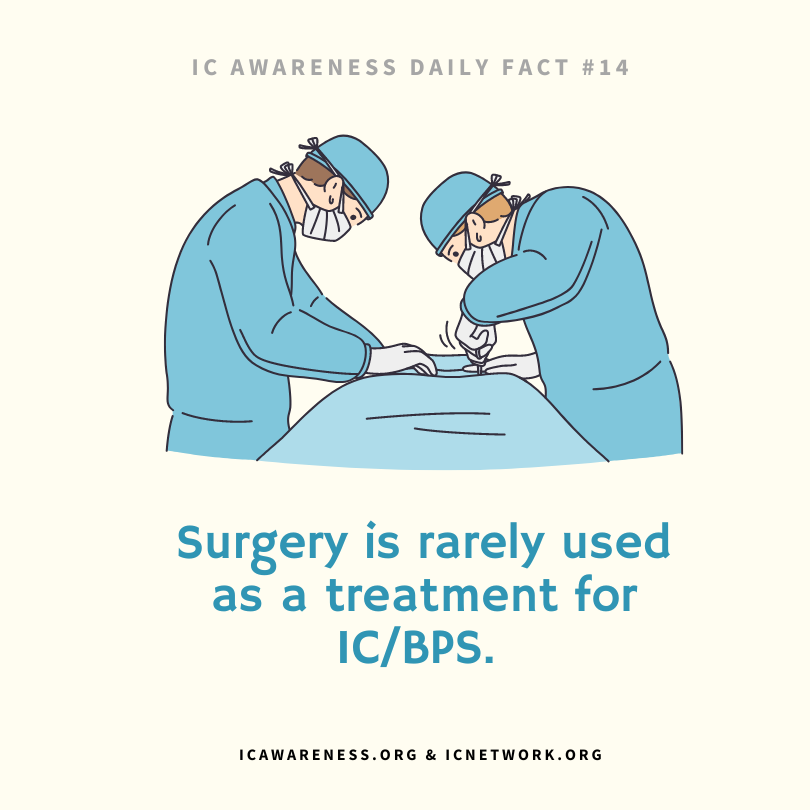
In the 2022 AUA Treatment Guidelines, major surgery (cystoplasty, cystectomy) is rarely suggested as a treatment for IC/BPS and only in a very small, select group of patients who have exhausted all other therapies and whose symptoms are directly caused by the bladder.
Neuropathic pain, pelvic floor muscle dysfunction will not improve with surgery. It is best reserved for patients with an end-stage fibrotic bladder (small, inflexible), a small bladder capacity under anesthesia and/or the presence of Hunner’s lesions.
Patients who are not good candidates for bladder surgery and/or are at higher risk of failure are:
- – Large capacity/volume under anesthesia
- – Absence of Hunner’s Lesions
- – Lack of relief with an anesthetic instillation (lidocaine, etc.)
- – Pelvic muscle tension and tenderness
- – Genital hyperesthesia
- – Pain beyond the pelvis
- – Patients with multiple pain conditions
The AUA cautions that major bladder surgery should only be performed by surgeons with extensive experience in IC/BPS and who will be dedicated to the long-term care of the patient.
Additional Resources
- Osborne J. New IC/BPS Guidelines Released in May 2022. IC Network. May 23, 2022
- Hanno P, et al. Diagnosis and Treatment of IC/BPS. Published 2011; Amended 2014; Amended 2022. American Urology Association Guidelines
- Sandler G, et al. IC 101: It’s Not Just a Bladder Disease. IC Network. June 2021.
Tik Tok
@icnetworkjill IC Awareness month Daily Fact 14 – surgery is rarely used as a treatment for #IC . #ictok #icawarenessmonth ♬ original sound – IC Network
Past Images

